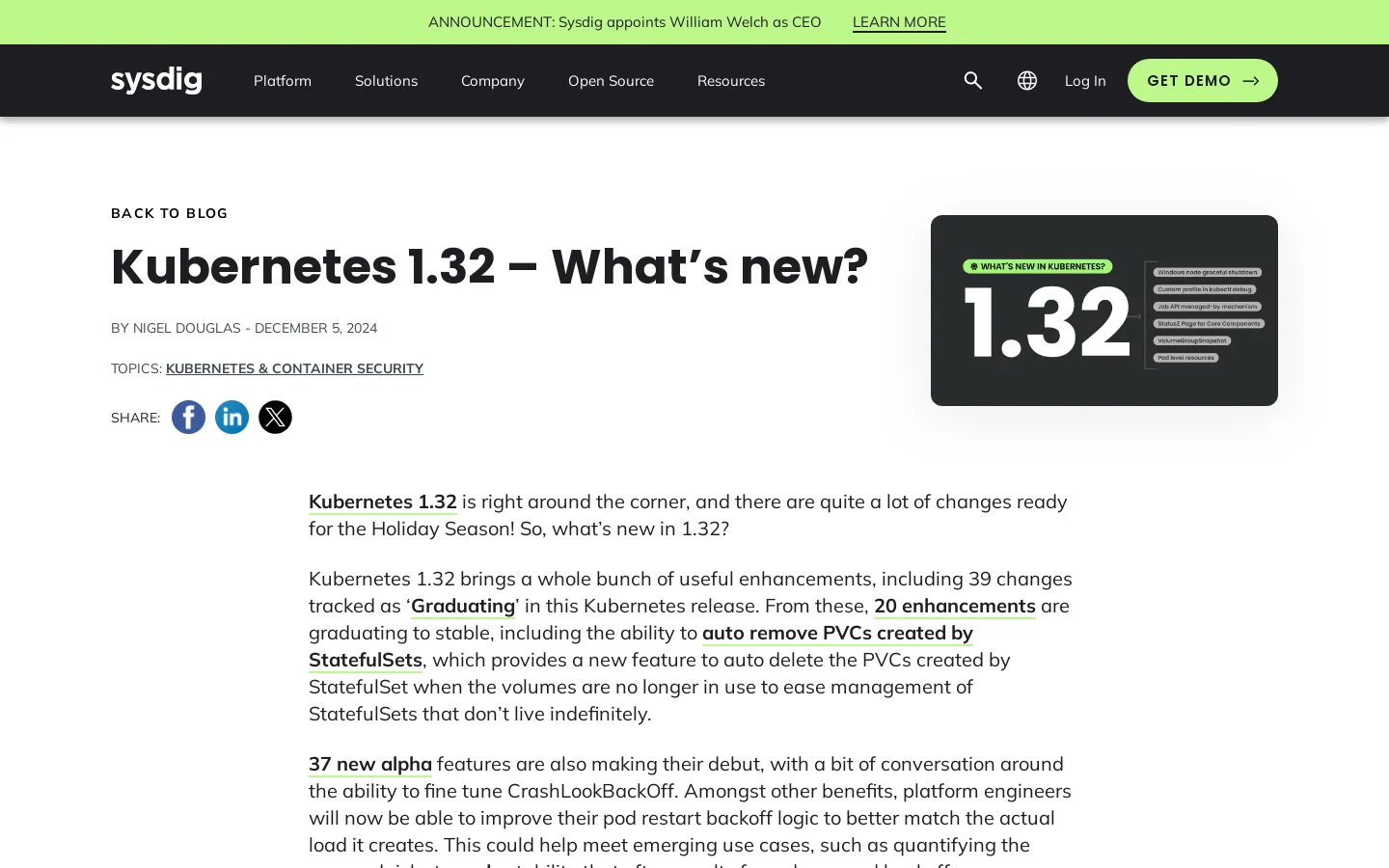
Kubernetes 1.32 Introduces New Features and Enhancements
/ 3 min read
Quick take - The upcoming release of Kubernetes version 1.32, scheduled for the Holiday Season, is set to introduce numerous enhancements aimed at improving resource management, debugging capabilities, and security within the container orchestration platform.
Fast Facts
- Kubernetes version 1.32 is set to be released during the Holiday Season, featuring significant enhancements in resource management, debugging, and security.
- The update includes 39 changes, with 20 enhancements graduating to stable status, improving system reliability and management.
- Notable features include the auto removal of Persistent Volume Claims (PVCs) from StatefulSets and improved pod termination during Windows node shutdowns.
- The update enhances PersistentVolume reclaim policies to prevent resource leaks and improve storage lifecycle management.
- Custom profiling in kubectl debug allows for tailored debugging workflows, enhancing efficiency while maintaining security.
Kubernetes 1.32: A New Era of Enhanced Functionality and Security
As the holiday season approaches, the Kubernetes community is abuzz with anticipation for the release of Kubernetes version 1.32. This latest iteration of the open-source container orchestration platform promises a suite of enhancements designed to refine resource management, bolster security, and streamline debugging capabilities. These updates are poised to significantly impact how developers and organizations manage containerized applications in cloud environments.
Key Enhancements in Kubernetes 1.32
Kubernetes has long been a cornerstone for developers seeking efficient solutions for deploying and managing applications. Version 1.32 continues this legacy by addressing critical areas that enhance both functionality and user experience. Among the 39 updates introduced, 20 enhancements have reached stable status, marking a notable improvement in system reliability and management.
Resource Management Simplified
One of the standout features in this release is the automatic removal of Persistent Volume Claims (PVCs) created by StatefulSets. This enhancement simplifies resource management by reducing manual cleanup efforts, allowing developers to focus on more strategic tasks. Additionally, consistent honoring of PersistentVolume reclaim policies prevents resource leaks, ensuring efficient storage lifecycle management.
Improved Debugging Capabilities
The introduction of custom profiling in kubectl debug offers developers a more streamlined approach to debugging workflows. This feature allows for tailored configurations while maintaining security, enabling users to efficiently diagnose and resolve issues without compromising their environments’ integrity. Such advancements are crucial for maintaining operational resilience in complex cloud infrastructures.
Security and Reliability Upgrades
Security remains a top priority for the Kubernetes community, and version 1.32 reflects this commitment through several key enhancements. The update addresses pod termination more effectively during Windows node shutdowns, ensuring workloads are gracefully terminated. This not only improves workload consistency but also enhances overall system reliability.
Preparing for Transition
As the release date nears, developers and organizations within the Kubernetes ecosystem are encouraged to prepare for the transition to version 1.32. The enhancements may significantly impact productivity and operational efficiency, underscoring the importance of staying up-to-date with the latest developments in Kubernetes technology.
To facilitate a smooth transition, stakeholders should review the detailed release notes provided by the Kubernetes community. These documents offer comprehensive insights into new features and changes, enabling users to adapt their workflows accordingly.
In conclusion, Kubernetes version 1.32 represents a significant step forward for the platform, reinforcing its position as a leading solution in container orchestration. By focusing on critical functionalities such as resource management, debugging, and security, this release underscores the ongoing innovation within the Kubernetes community.



